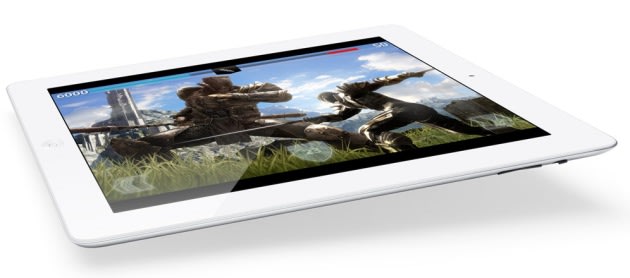Is the video game industry Apple’s next victim?

While Apple has a well-earned reputation as the inventor of new markets, it's also something of a serial killer.
The
company's advances in digital music players made the Walkman an afterthought.
The introduction of iTunes sounded a virtual death knell for many record
retailers. The iPad cut the legs out from under the once fast-growing netbook
PC market. And the iPhone has put Motorola in a fight for its life.
Now,
the company looks to be focusing on the video game industry -- and plenty of
people are rightfully scared.
The
sheer numbers are overwhelming. In 2011 alone, the company says it sold 172
million "post PC" devices, an Apple term encompassing the iPhone,
iPad and iPod. To put that into context, that's nearly 30 million more than the
lifetime sales of
the Xbox 360, PlayStation 3, Nintendo 3DS and PlayStation Vita added together.
[Related: New iPad more expensive to make]
And
it's worth noting that for the last two years, Apple has chosen to unveil the
latest iPad smack in the middle of the video game industry's Game Developer
Conference, effectively sucking the oxygen out of the news cycle. Adding insult
to injury, they've made that announcement right across the street from the
GDC's main convention hall.
Last
year, Nintendo's global president Satoru Iwata spoke passionately about the
danger Apple (and other mobile companies) represent to the industry.
"Game
development is drowning," he said. "Until now, there has always been
the ability to make a living [making games]. Will that still be the case moving
forward?"
Ben
Cousins, the general manager of mobile game maker ngmoco Sweden,
furthered that argument at this year's GDC.
"I
believe that mobile devices and mobile platforms are the disruptive
technologies that are going to cut a slice through the Western market," he
said in a talk called "When The Consoles Die, What Comes Next?"
To
say Apple could outright kill the video game industry is a bit hyperbolic. A
diminished market is not a dead one, and there will likely always be a demand
for bleeding-edge products which can't be played on an Apple device.
"There's
always going to be a market for the very high end, whatever that high end
is," says Ubisoft Toronto managing director Jade Raymond. "If
consoles eventually become the holodeck — and I can only have that at home, I'm
going to want that. It's going to be something you can't get walking to the
bus. … That high-end experience needs to be beefed up with our top hardware —
but more and more we're going to have to think about what people's experiences
are."
There
is, however, no doubt that Apple's having a transformative effect.
Sony has seen the
Vita struggle a bit since its February debut, and Nintendo was forced to deeply
cut the retail price of the 3DS when it failed to quickly stir gamer passions.
All the while, gaming apps have continued to see sales increase, even finding
success by crossing over to console. One of the most successful games on Xbox
Live Arcade — Fruit Ninja — got its start as an app. And it's virtually
mandatory for publishers to release an app companion to major console games
these days to capitalize on both markets.
Cousins
says he expects this trend to continue, and suggests that some franchises may
abandon consoles for the App store.
He
notes that after televisions were introduced in the mid-1960s, cinema
attendance plunged and theaters suffered terribly. Content producers, though,
managed the transition by bringing movies to TV (and later home video).
"They
moved their content to the lower-res, free-to-play TV channels," he says. "Games content developers need to do the
same. They need to move their content to these low-resolution platforms."
The
irony, of course, is that the company that's revolutionizing video games is
Apple, which only a few years ago was lampooned for its lack of gaming options.
The
company stumbled into its powerful position in the gaming world and didn't seem
to embrace it until the fall of 2009, when Steve Jobs, in one of his famous
keynotes, referred to the iPod Touch as "the number one portable game
player in the world." A year and a half later, console companies are wringing
their hands as talk of an Apple TV swirls and the new Angry Birds is getting
more attention than the new Halo.
To
some, it's really just a matter of time.
"It
is quite easy to imagine a world where an iPad is more powerful than a home
console, where it wirelessly talks to your TV and wirelessly talks to your
controller and becomes your new console," Mike Capps, president of Epic
Games, recently told Reuters. ""Apple is definitely building their
devices as if they care a lot about 'triple-A' games."
No comments:
Post a Comment